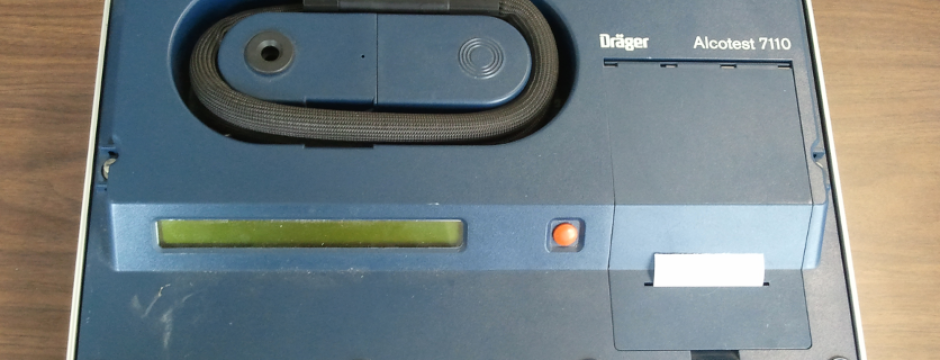B.A.C. stands for “Blood Alcohol Content.” In New Jersey, the majority of DWI prosecutions are undertaken utilizing the result of a breath test, which is sometimes called “Breath Alcohol Content,” and may sometimes be noted as “Br.A.C.” Although scientifically speaking there is a difference between blood and breath alcohol content, the New Jersey courts treat Breath Alcohol Content as if it were exactly the same, and exactly as accurate as Blood Alcohol Content.

In New Jersey, the legal limit of alcohol in your blood is .08%.
Breath Testing
New Jersey utilizes the Alcotest® 7110 MK-IIIC, although colloquially many people still refer to it as a “Breathalyzer.” In actuality, the Alcotest® is much different than the Breathalyzer, although those differences need not be discussed here. The Alcotest® is responsible for ALL evidential breath testing throughout the State of New Jersey. Often people are confused because they think they have already given a breath sample at the side of the road and do not know why they are being asked to do it again at the police station. However, what the person has been tested on at the side of the road is a Portable Breath Test (PBT), which is not admissible in court. The Alcotest® produces the ONLY B.A.C. reading that is admissible (under specific conditions) in court in a DWI prosecution.
When a person is arrested for DWI, he or she is driven back to the police station and processed. He is read a statement, called the “Standard Statement” which informs him that he does not have the right to refuse to breath testing, and informs him that refusing to submit to breath testing will result in an additional charge of Refusal being added, and that Refusal carries with it penalties that are independent of the penalties for DWI.
Once the arrestee has consented to giving breath samples, the officer must observe him for 20 minutes to ensure he does not belch, regurgitate, or place anything in his mouth prior to the breath testing. Note that the 20 minute observation does not have to occur after the Standard Statement is read.
When the 20 minutes are finished, the Alcotest® will go through a Control Test prior to the arrestee giving his first breath sample. He will then be asked to blow into the hose of the Alcotest® until told to stop. There is then a 2 minute period during which the Alcotest® purges any residual alcohol from the chamber inside of it, and then the arrestee will be asked to blow a second time. After the second acceptable breath test, the Alcotest® again performs a Control Test, and if it passes, an Alcohol Influence Report (A.I.R.) is printed revealing the arrestee’s B.A.C.
It is possible that it will take more than two breath samples for a B.A.C. to be revealed. If the blowing time is too short, minimum volume not achieved, or another error is registered, the arrestee will have to blow multiple times. The Alcotest® allows 11 chances in a single test, but the officer is not required to give the arrestee all 11 chances prior to terminating the test. If the officer feels that the arrestee is purposely not trying hard enough or is trying to fool the test, he can charge the arrestee with Refusal.
Blood Testing
In New Jersey, blood tests are generally only given to test a person’s B.A.C. when the person has been taken to the hospital due to having been involved in a car accident. Until recently, an officer did not have to apply for a warrant or obtain consent prior to taking blood from an arrestee. However, since the Supreme Court announced a new ruling in Missouri v. McNeely on April 17, 2013, the status of DWI blood testing in New Jersey is in limbo. An officer will now likely have to apply for a warrant, or can choose to obtain informed consent from the arrestee, before a blood sample can be taken. This section will be updated when the new New Jersey procedures are made available.
